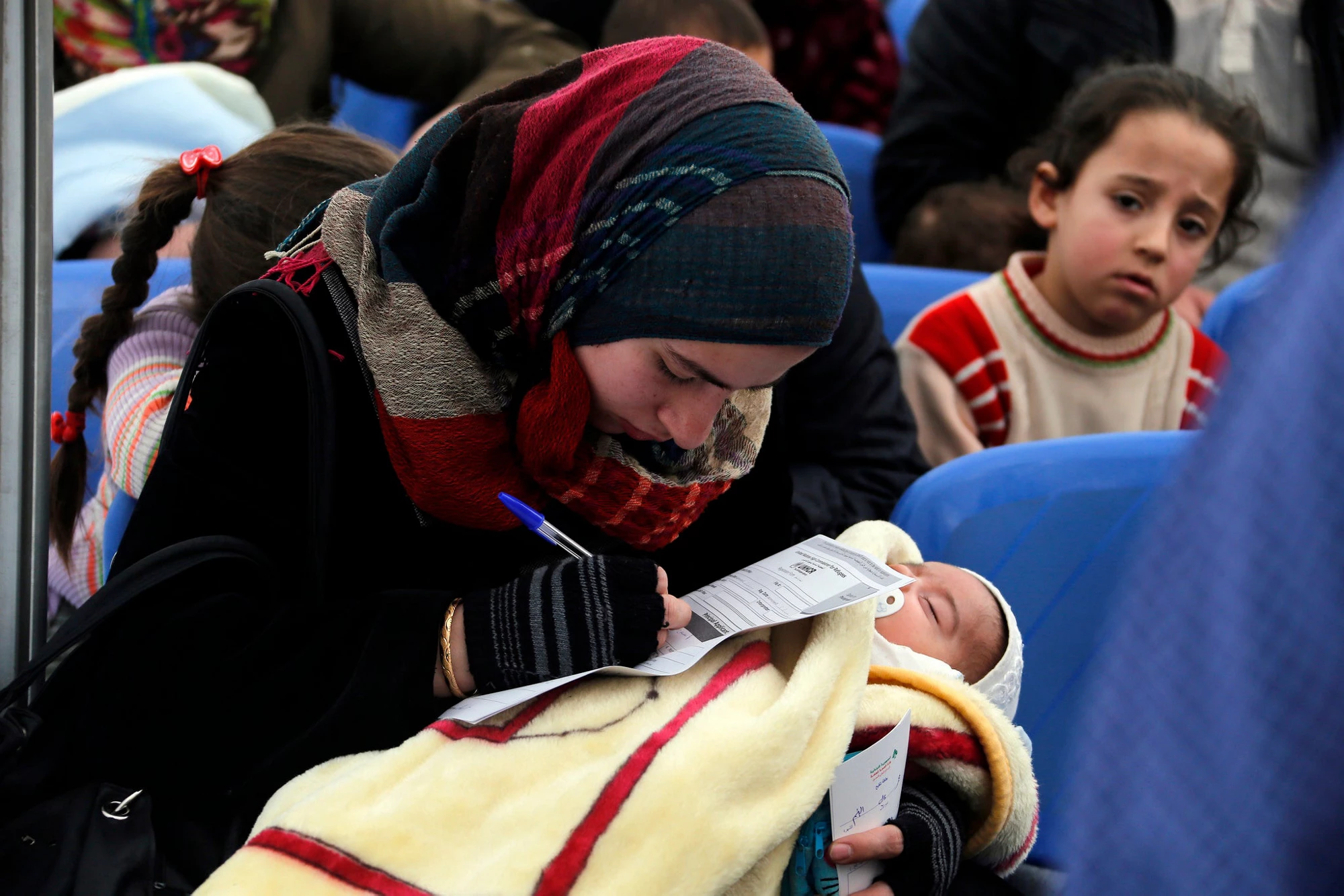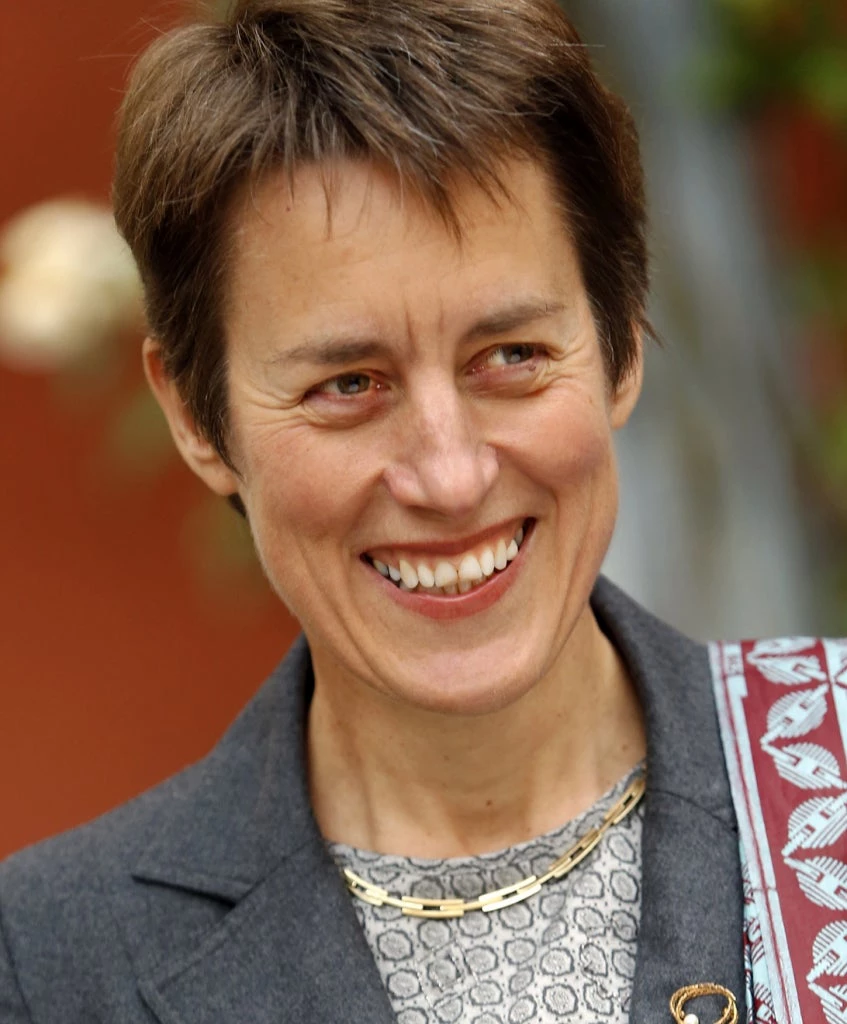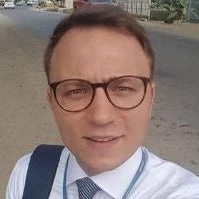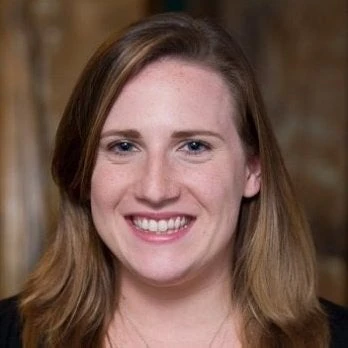
If you were forced to run for your life, amidst falling bombs or as a hurricane approaches, what would you grab after your children and loved ones? You would be well advised to make your identity documents one of the first things to pack. Birth certificates, national ID cards, passports, residence permits, even a driver’s license—documents like these will be necessary to prove who you are to the authorities in the country to which you flee, and the authorities in your home country when it is safe to return.
Without these documents, the already nightmarish scenario becomes much worse. If forced to cross an international border, a person lacking identity documents will be unable to travel through the legal channels. A child separated from his or her parents and without any identification is more vulnerable to being trafficked. A person with a claim to refugee status—or even to nationality—in the country to which they have fled may be unable to get recognition of their right to be there. Lacking identification issued by the host country, they may also face trouble accessing goods and services that facilitate self-sufficiency and local integration, such as a SIM card, a bank account, education for children, and healthcare.
Even in rich countries unaffected by conflict, including the US, the poor and homeless struggle to get the documents to which they are entitled. Now imagine a Syrian refugee family in Turkey or Lebanon who have lost identifying documents from Syria in the chaos of their flight. If they are members of Syria’s Kurdish population, many of them were never recognised as Syrian nationals, and the family may never have had papers to begin off with. How would they get their claim to remain as refugees processed without these documents? How would they get themselves put on the list for resettlement for especially vulnerable refugees because of their disabled child? How would they ensure that a new child born in exile is not denied future recognition of Syrian nationality and left stateless because of lack of birth registration, or because the father (and his identity documents) are missing?
A lack of identity documents significantly increases the vulnerability of those who have been forcibly displaced, whether in their own country or across international borders. This is not only in the context of flight, but also when return home becomes possible.
What needs to be done?
Through the Sustainable Development Goals (SDGs), specifically target 16.9, all countries agreed to achieve legal identity for all by the year 2030. Similarly, the first two of 10 Principles on Identification for Sustainable Development published this year by the World Bank Group, UN agencies and other organizations, call for universal coverage and accessibility of identification systems.Host countries have an important responsibility to register refugees who reside on their territory, and to provide them with identity documents that are recognized by public and private service providers and document their status as a refugee. UNHCR’s #IBELONG campaign emphasises that similar protections should apply to stateless persons and those whose nationality is in doubt.
Among the most basic responsibilities of states is universal birth registration for all those born in their territory, as well as registration of deaths and marriages and other changes in status. In particular, birth registration provides a child with official evidence of who their parents are and where they were born, which can facilitate recognition or acquisition of a nationality and ensure family unity during resettlement or repatriation.
Governments must take care that the registration of refugees and other displaced persons is done in a way that safeguards rights and fosters inclusion, and also strengthens the capacity of authorities to administer these populations and more efficiently provide assistance and durable solutions, including voluntary repatriation, local integration and resettlement. This requires that the procedures are fair and accessible, and that appeal is possible if an application for a particular status is rejected.
Last year, the World Bank’s Identification for Development (ID4D) program published a report on identification in the context of forced displacement as scoping exercise for working on this issue. The World Bank is now building on this initial work and partnering closely UNHCR, IOM, and others to conduct further research and provide technical and financial assistance to interested host countries, including through appropriate innovations. As part of this agenda, ID4D is also working on improving data and methods to calculate how many refugees and other vulnerable persons are without proof of legal identity, so resources and efforts can be directed to the right places.
Much work and advocacy still needs to be done, but we are optimistic that progress can be made. There is increased recognition of the role that identification can play in managing forced displacement and finding solutions. Governments are more interested and committed than ever to achieving universal coverage of identification systems, including for refugees. Development and humanitarian partners, such as the World Bank, are scaling up the support they can provide. The private sector is working on innovative solutions for challenges like secure digital storage of identity documents that can be retrieved and verified when needed. And advances in certain technologies, such as mobile and biometrics, make it possible to build robust and inclusive identification systems more easily, cheaply and quickly than ever before.
As we commemorate the amazing strength, courage and perseverance of refugees on World Refugee Day, take a moment to imagine how much your life is simplified because you can respond easily when asked, “Papers please?”




Join the Conversation